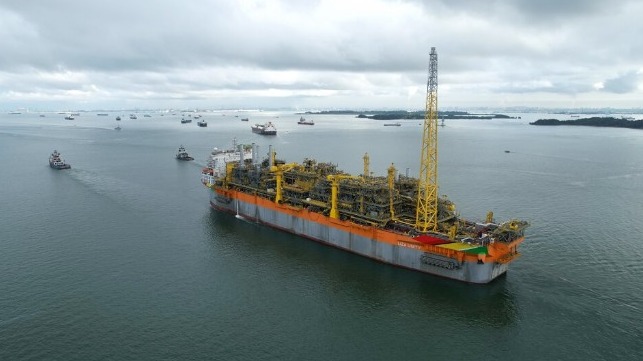Lloyd's Adds Guyana Offshore Sector to War Risk List

Amidst heightened border tensions between Venezuela and the small nation of Guyana, Lloyd's Joint War Committee has added the booming Guyanese offshore sector to its list of areas of elevated risk, alongside notable hot spots like the southern Red Sea and the Black Sea.
In an update to its Listed Areas issued Monday, the JWC said that it was adding Guyana, but only for calls to offshore installations within the Guyanese EEZ between the 12-mile and 200-mile lines (beyond territorial waters). This is an increasingly busy region: ExxonMobil is developing multiple offshore oilfields in its prolific Stabroek Block lease area off Guyana, and is deploying multiple FPSOs to ramp up production on a short timetable. Vessel traffic includes OSVs and large tankers, which call at Exxon's FPSOs to load crude.
Venezuelan President Nicolas Maduro has increased tensions along the border by reasserting old claims to the province of Essequibo, Guyana. This region of undeveloped rainforest accounts for two-thirds of Guyana's land area, but a small fraction of its population. It contains valuable prospects for oil and gold extraction, and Maduro has ordered Venezuelan state natural resource companies to pursue opportunities in the region - on Guyanese territory.
The dispute dates back to the colonial era, when Guyana was known as British Guiana. British administrators selected a border demarcation west of the Orinoco River in 1840, then entered into an American-mediated agreement with Venezuela formalizing this border in 1899. Venezuela protested in 1966, winning a promise from the UK to further discuss the matter or refer the dispute to the UN. In 2020, the International Court of Justice agreed to take up a Guyanese case to settle the dispute once and for all.
Maduro claims that the ICJ does not have jurisdiction, and he has not waited for the court case to finish. This year, he held a popular referendum asking whether Essequibo should become part of Venezuela. The result - as reported by Maduro's authoritarian state - showed overwhelming Venezuelan popular support for the idea.
The referendum was accompanied by small-scale military movements along Venezuela's side of the border, prompting concern that Maduro might attempt a military intervention. Though Venezuela's forces have been depleted by years of financial deprivation, Guyana has little if any ability to resist a military attack, and it only maintains a handful of maritime patrol vessels to guard its waters.

that matters most
Get the latest maritime news delivered to your inbox daily.
Guyanese President Irfaan Ali has emphasized that his government "reserves the right to work with all our partners to ensure the defense of our country." The Biden administration has ordered a review of Venezuela's military movements in order to better assess the likelihood of a conflict.
Last week, a summit between Maduro and Ali appeared to lower the temperature somewhat. At an airport conference room in Kingstown, St. Vincent, the two men shook hands and agreed to mediate the dispute peacefully. They agreed to differ on the validity of the ICJ proceeding, and noted Venezuela's objections.
